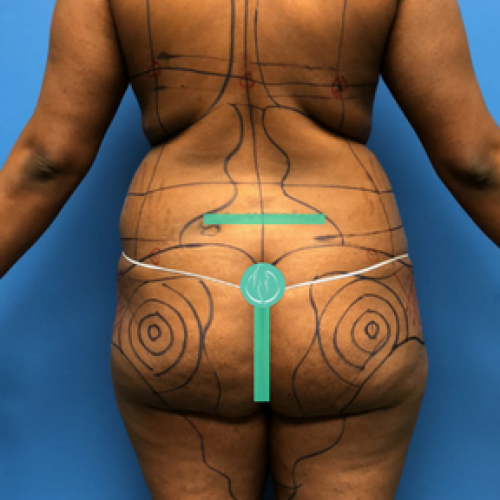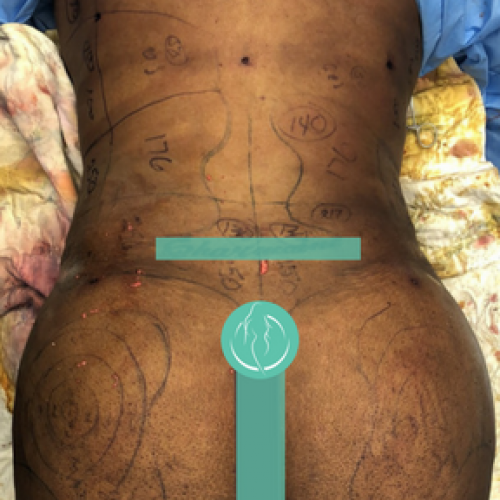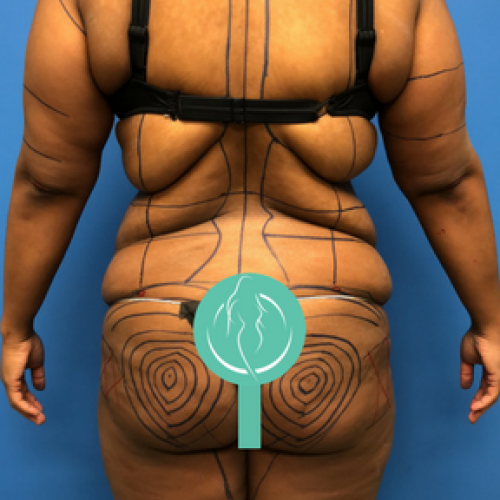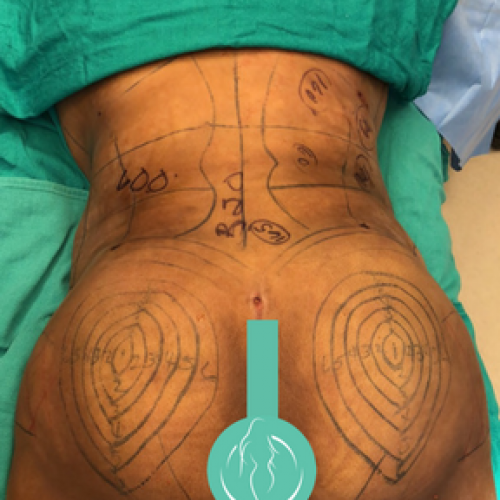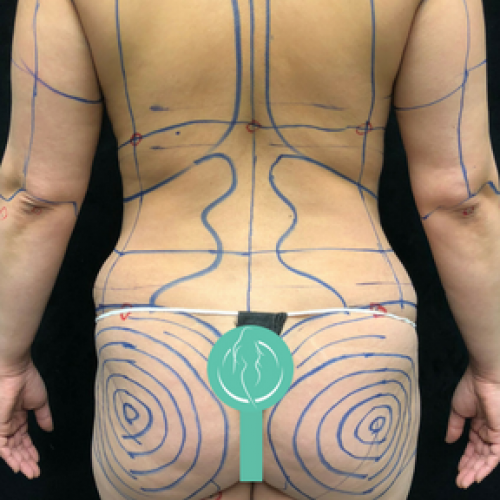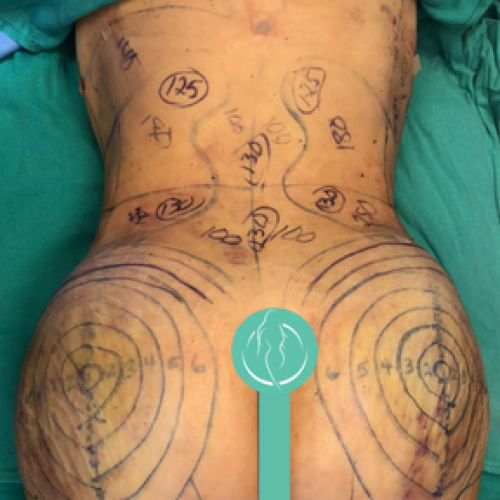Patient Bill of Rights
Oser Plastic Surgery and Med Spa
Statement of Patient Rights and Responsibilities
All patients seeking treatment or care have rights, which are described below as the “Patient Bill of Rights”. Information on these rights is available to all patients at the time of registration. If patients have been judged to be incompetent in accordance with law, their physicians to be incapable of understanding their rights, are unable to communicate, or communicate, or are unemancipated minors, these rights may be exercised by guardians, next-of-kin, or legally authorized persons on behalf of the patients.
Patient Rights
1. A patient has the right to respectful care given by competent personnel.
2. A patient has the right, upon request, to be given the name of his attending practitioner, the names of all other practitioners directly participating in his care, and the names and functions of other health care persons having direct contact with the patient.
3. A patient has the right to consideration of privacy concerning his own medical care program. Case discussion, consultation, examination and treatment are considered confidential and shall be conducted discreetly. Patients are given the opportunity to participate in decisions involving their health care, except when such participation is contraindicated for Medical reasons.
4. A patient has the right to have records pertaining to his medical care treated as confidential except as the otherwise provided by law or third party contractual arrangements.
5. A patient has the right to know what surgery center rules and regulations apply to his conduct as a patient.
6. The patient has the right to expect emergency procedures to be implemented without unnecessary delay.
7. The patient has the right to good quality care and high professional standards that are continually maintained and reviewed.
8. The patient has the right to full information in layman’s terms, concerning diagnosis, treatment and prognosis, including information about alternative treatments, the right to change providers and possible complications. When it is not medically advisable to give the information to the patient, the information shall be given on his behalf to a responsible person.
9. Except for emergencies, the practitioner shall obtain the necessary informed consent prior to the start of a procedure.
10. A patient or, if the patient is unable to give informed consent, a responsible person, has the right to be advised when practitioner is considering the patient as part of a medical care research program or donor program, and the patient or responsible person, shall give informed consent prior to actual participation in the program. A patient, or responsible person, may refuse to continue in a program to which he has previously given informed consent.
11. A patient has the right to refuse drugs or procedures, to the extent permitted by statue, and a practitioner shall inform the patient of the medical consequences of the patient’s refusal of drugs or procedures.
12. A patient has the right to medical and nursing services without discrimination based upon age, race, color, religion, sex, national origin, handicap, disability or source of payment.
13. The patient who does not speak English shall have access, where possible, to an interpreter.
14. The surgery center shall provide the patient, or patient designee, upon request, access to the information contained in his medical records, unless access is specifically restricted by the attending practitioner for medical reasons.
15. The patient has the right to expect good management techniques to be implemented within the surgery center. These techniques shall make effective use of the time of the patient and avoid the personal discomfort of the patient.
16. When an emergency occurs and a patient is transferred to another facility, the responsible person shall be notified. The institution to which the patient is to be transferred shall be notified prior to the patient’s transfer.
17. The patient has the right to examine and receive a detailed explanation of his bill.
18. A patient has the right to expect that the surgery center will provide information for continuing health care requirements following discharge and the means for meeting them.
19. A patient has the right to be informed of his rights at the time of admission.
20. As an Adult patient or emancipated minor, you may convey in advance (advance directives) your wishes regarding extraordinary treatment or the person you would like to make decisions for you should you become unable to speak for yourself, and have Elite personnel comply with these directives.
21. A patient has a right to voice grievances regarding treatment or care that is (or fails to be) provided.
22. A patient has a right to receive care in a safe setting.
23. The patient has a right to be free from all forms of abuse or harassment.
24. The patient has a right to be free from any act of discrimination or reprisal.
25. The patient has a right to be fully informed about treatment or procedure and the expected outcome before it is performed.
26. The patient has a right to personal privacy.
Patient Responsibilities
1. A patient should provide, the best of his or knowledge, accurate and complete information about present complaints, past illnesses, hospitalization, medications, pain, and other matters relating to his or her health. Unexpected changes in conditions are also to be reported to the appropriate individual.
2. A patient should make it known to the appropriate people whether or not he or she clearly understands a contemplated course of action and what is expected.
3. A patient should follow the treatment plan recommended by the practitioner responsible for his or her care. This may include following the instructions of nurses and allied health personnel as they carry out the coordinated plan of care and implement the responsible practitioner’s orders. The patient is responsible for resulting outcomes if he or she refuses treatment or does not follow the practitioner’s instructions.
4. A patient should assure either personally or through a legally responsible party that the financial obligations of his or her stay fulfilled as promptly as possible.
5. The patient is responsible for being considerate of the rights of other patients and personnel, and for assisting in the control of noise, smoke and the number of visitors. The patient shall respect the property of others.
Patient Inquiries: http://www.hhs.gov/center/ombudsman.asp
If a patient has a concern about the quality of care provided or feels that they were discharged too early they may contact:
Quality Net
777 East Park Drive
P.O. Box 8310
Harrisburg, PA 17105-8310
Please forward any concerns to:
Oser Plastic Surgery and Med Spa
1 Robinson Plaza Suite 230 Pittsburgh, PA 15205
Oser Plastic Surgery and Med Spa notwithstanding a patient may address a concern to:
PA Department of Health
Division of Acute and Ambulatory Care
Room 532
Health and Welfare Building
Harrisburg, PA 17120
1-800-254-5164
Oser Plastic Surgery and Med Spa
MEDICAL RECORDS
Advance Directives
POLICY
It is the policy of the Oser Plastic Surgery and Med Spa to honor a patient’s right to execute a written Advance Directive in accordance with Pennsylvania Act 169. Oser Plastic Surgery and Med Spa has available information and paperwork to assist patients in executing an Advance Directive if desired. If a patient has an Advance Directive or completes an Advance Directive at Oser Plastic Surgery and Med Spa, the Advance Directive will be prominently displayed in the patient’s medical record.
Patients who are scheduled for surgery at the Oser Plastic Surgery and Med Spa are presumed to be able to undergo the surgical procedure and attendant anesthesia that is performed at an ambulatory surgical center. Given the parameters that we use and the expected outcome of a successfully completed operative procedure, and as permitted by Act 169, in the event a patient’s medical condition necessitates resuscitation, as a matter of conscience, all reasonable resuscitation efforts will be undertaken at the Oser Plastic Surgery and Med Spa, regardless of an Advance Directive statement. As soon as practical, after the patient is resuscitated and transferred to a more appropriate health care facility, the stipulations of the Advance Directive will be respected and carried out.
PROCEDURE
1. In the preoperative telephone interview, if a patient has an Advance Directive, they will be asked to bring their Advance Directive to the Oser Plastic Surgery and Med Spa on the day of surgery. The patient’s acknowledgement of an Advance Directive will be documented in the telephone pre-assessment form.
2. If during the interview process a patient verifies that he/she has an Advance Directive the patient will be informed of the facility’s policy to make every effort to resuscitate.
3. Prior to the date of the procedure, or if applicable, on the date of admission to the Oser Plastic Surgery and Med Spa, the patient will be provided with the facility’s policy on Advance Directives, including a copy of this policy. Upon request, the Oser Plastic Surgery and Med Spa will provide the patient with a copy of the surgery center’s Advance Directive Form. If the patient presents a living will upon admission it will be copied and placed on the chart.
4. If it is necessary to resuscitate a patient, he/she will be transferred to a more appropriate health care facility as soon as possible and the receiving facility will be notified of the patient’s Advance Directive.
DISCLOSURE OF OWNERSHIP
• Dr. Craig Oser
